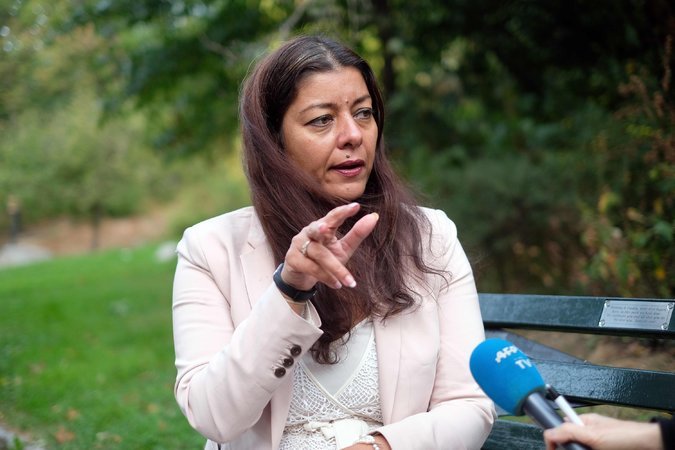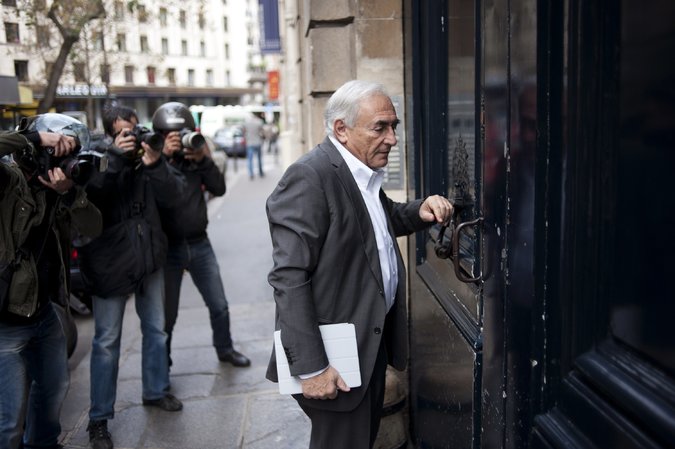Marlène Schiappa, a feminist and writer who is France’s junior minister for gender equality, said on Monday that the government was considering precisely how to define street harassment and how much to fine. The government would consult legal professionals on its proposals and hold workshops for citizens across the country, she said, aiming to put measures before Parliament next year.
Speaking to RTL radio, Ms. Schiappa said she had been deeply struck by the response to the #BalanceTonPorc hashtag.

“We all have stories of harassment and assault,” she said, adding: “One of my best friends said something with this hashtag that she had never told our group of friends. This hashtag, with the barrier created by a screen, can help people speak out, and I think that it is truly beneficial.”
Some commentators argued that sexual harassment accusations would be better handled in a courtroom than on social media. “Denouncing sexual harassment on a social network with a hashtag isn’t the appropriate place at all,” said Christophe Noël, a labor lawyer. “It can rebound on the accuser and create an open door to excesses and defamation.”
Ms. Muller, the journalist who first tweeted the “Expose Your Pig” hashtag, said in a phone interview on Tuesday that although she was overwhelmed by the hundreds of reactions she had received, she didn’t want Twitter to become a tribunal. “I’m not a judge,” she said.
Two lawyers for the executive Ms. Muller named in her tweet demanded on Tuesday that she delete it; one of the lawyers, Nicolas Bénoit, called her accusation a case of defamation but declined to comment further. The executive didn’t respond to requests for an interview.
In France, the Weinstein affair has recalled the case of Dominique Strauss-Kahn, the former International Monetary Fund chief and one-time presidential contender who was arrested in New York in 2011 and accused of assaulting a hotel housekeeper. Those charges were dropped, but helped dent a longstanding French reluctance to breach the privacy of public figures, no matter their sexual transgressions.
Advertisement
Continue reading the main story
Sandrine Rousseau, a former leader of the French Green Party and leading advocate for victims of sexual harassment, said the Weinstein case had particular resonance in France because women had suffered in silence for so long.
Ms. Rousseau was one of a dozen women who in 2016 accused a Green Party legislator, Denis Baupin, of sexual harassment, saying he had pushed her up against a wall and kissed her against her will. Mr. Baupin, who resigned as vice president of France’s National Assembly, denied the accusations and the case was dropped on the grounds that too much time had elapsed.
“DSK was the first blow, and Baupin the second one,” Ms. Rousseau said in an interview, referring to the initials of Dominique Strauss-Kahn. “The Weinstein revelations have had a strong echo in France, because what used to be seen as naughtiness is now being considered as sexual harassment.”

Ms. Rousseau said “Expose Your Pig” was a good start, but words needed to be translated into action and successful legal cases remained rare. According to a 2016 study by Ifop, a leading pollster, just 65 of the 1,048 sexual harassment lawsuits in France in 2014 led to a conviction.
But the atmosphere may be changing. In December, Georges Tron, who was a mayor and a government official under former President Nicolas Sarkozy, will stand trial on accusations of rape and sexual harassment after two women said he had assaulted them in a locked room in the town hall when he was mayor of Draveil, south of Paris. Mr. Tron resigned in 2011 over the accusations, which he denies.
In Europe, several countries have moved in recent years to criminalize sexual harassment, including Portugal where the left-leaning government in 2015 made verbal sexual abuse a crime with a fine of up to 120 euros, or about $142. Belgium has also moved against sexual harassment, and in 2014 introduced penalties including a jail sentence of up to one year for remarks intending to express contempt for a person because of his or her gender.
Newsletter Sign Up
Continue reading the main story
Thank you for subscribing.
An error has occurred. Please try again later.
You are already subscribed to this email.
In a sign of how French mores have evolved, President Emanuel Macron on Sunday announced that he had begun the procedure to strip Mr. Weinstein of France’s highest award, the Legion of Honor, which he had received in 2012 for his work promoting foreign cinema in the United States.
Brigitte Macron, the French first lady, has congratulated victims of sexual harassment or violence for sharing their stories, and she expressed hope that something positive could come out of the “bad” of the Weinstein affair.
Several French actresses are among the more than two dozen women who have stepped forward with accusations against Mr. Weinstein, among them Florence Darel, Judith Godrèche, and Léa Seydoux, who starred in the James Bond film “Spectre.”
Advertisement
Continue reading the main story
Ms. Seydoux wrote in The Guardian newspaper that when she first encountered Mr. Weinstein, he asked her to meet him for a drink and that he invited her to his hotel room.
“It was hard to say no because he’s so powerful,” she wrote. “We were talking on the sofa when he suddenly jumped on me and tried to kiss me. I had to defend myself. He’s big and fat, so I had to be forceful to resist him. I left his room, thoroughly disgusted.”
She added: “I wasn’t afraid of him, though. Because I knew what kind of man he was all along.”
Continue reading the main story
Article source: https://www.nytimes.com/2017/10/17/world/europe/france-harassment-twitter-weinstein.html?partner=rss&emc=rss
Speak Your Mind
You must be logged in to post a comment.